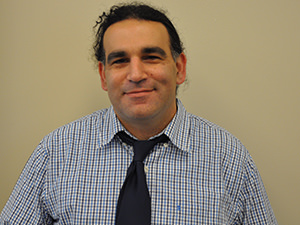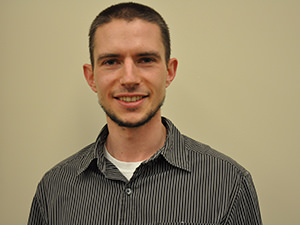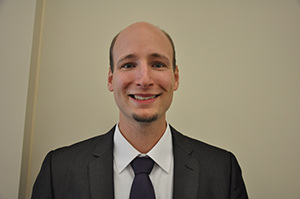CS Moves Forward, Announces Three New Faculty
08-21-2014
Writer(s): Jesica E. Hollinger
The expansion of Purdue Computer Science has begun, as the Department has hired three new assistant professors who will begin teaching this fall – Mathias Payer, Dan Goldwasser and Tiark Rompf.
Mathias Payer’s research interests are related to system security, binary exploitation, user-space software-based fault isolation, binary translation/recompilation, and (application) virtualization.
Before joining the faculty, he spent two years as a post doctoral student with Dawn Song's BitBlaze group at UC Berkeley. He graduated from ETH with a Dr. sc. ETH in 2012. The topic of his thesis is related to low-level binary translation and security. After developing a fast binary translation system (fastBT) he started to analyze different exploit techniques and wondered how binary translation could be used to raise the guard of current systems (with TRuE and libdetox as a prototype implementation of the security framework).

Dan Goldwasser was previously a postdoctoral researcher at the University of Maryland in College Park. He completed his Ph.D. studies at the University of Illinois at Urbana-Champaign in the Department of Computer Science, where he was a member of the Cognitive Computation Group, advised by Prof. Dan Roth.
Goldwasser’s research interests include natural language processing: semantics, textual inference, relation extraction, discourse structure and pragmatics, and machine learning: structured learning, learning with indirect supervision, and learning with latent variables. He is currently working on applying machine learning approaches to natural language processing problems and interested in connecting natural language with real world scenarios, using them to guide natural language understanding.

Tiark Rompf was a member of the technical staff for Oracle Labs, prior to being hired at Purdue. His research interests include applied and fundamental aspects of programming languages and compilers: language design, program analysis, program transformation, program generation and synthesis, type systems.
His focus is on generative programming, which can turn highly generic programs like inter- preters into highly specialized and efficient implementations. In addition, he is interested in bringing theoretical insights into practical use, and also in applying programming language technology to other CS fields such as databases, machine learning, or hardware architecture.
